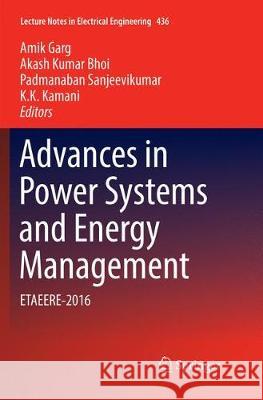Advances in Power Systems and Energy Management: Etaeere-2016 » książka
topmenu
Advances in Power Systems and Energy Management: Etaeere-2016
ISBN-13: 9789811351266 / Angielski / Miękka / 2019 / 735 str.
Kategorie:
Kategorie BISAC:
Wydawca:
Springer
Seria wydawnicza:
Język:
Angielski
ISBN-13:
9789811351266
Rok wydania:
2019
Wydanie:
Softcover Repri
Ilość stron:
735
Waga:
1.17 kg
Wymiary:
23.62 x 22.1 x 3.56
Oprawa:
Miękka
Wolumenów:
01











